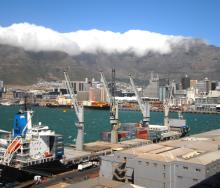Henties Bay has launched a biotechnology venture valued at over 250 million Namibian dollars, designed to provide a sustainable, long-term approach to managing the country’s expanding seal population.
Moreover, the job-creating venture, led by start-up, Vigor Biotechnology, is said to have real export potential for the fishing hamlet situated about 100 kilometres north of the Port of Walvis Bay.
The project will unfold in three distinct phases, beginning with the establishment of a facility dedicated to the extraction of seal oil and nuts.
New Era Live reports that plans also include the construction of residential and office spaces for staff.
It will be the second seal-processing plant in Henties Bay, as the existing facility has encountered difficulties related to changes in ownership and challenges accessing international markets, partly due to pressure from global animal rights organisations.
Vigor managing director, Albertus Diedericks, said the initial phase would occupy five hectares of a 25-hectare site that had already been secured in the town.
Construction is scheduled to commence at the end of the month.
Diedericks said the operation would involve harvesting seals to produce raw oil and fish feed from by-products, integrating biotechnology to manufacture soft-gel Omega-3 capsules. The nut processing division would focus on creams and health supplements, with trial production anticipated for 2026.
Once the facility reaches full capacity, it is projected to process approximately 400 seals daily. The initial focus will be on the seal and nut processing units, followed by the development of an oil refinery and laboratory, with the final phase involving a leather production plant utilising seal skins.
The initiative has received robust support from the Namibian government, with endorsements from key ministries.
The Parliamentary Standing Committee on Natural Resources has also recommended an increase in the annual seal harvesting quota from 50 000 to 200 000 animals, citing the need to manage the growing seal population and its impact on Namibia’s fish stocks.
The current quota remains underutilised due to limited market demand, which has contributed to an increase in seal numbers. To address this, the committee has suggested extending the harvesting season and encouraging greater domestic consumption of seal meat.
Mac-Albert Hengari, Namibia’s Minister of Agriculture, Fisheries, Water and Land Reform, said the investment demonstrated the potential of collaboration between government and the private sector.
The plant would produce high-value seal and nut oils rich in Omega-3 fatty acids, which are widely used in the pharmaceutical and cosmetic industries.
Because of the controversy around Namibia’s seal culling in the past, Vigor Biotechnology has been requested to maintain high environmental and labour standards, using operations that are guided by scientific data and monitored quotas to ensure conservation and ecological balance while benefiting from the country’s seal resource.













